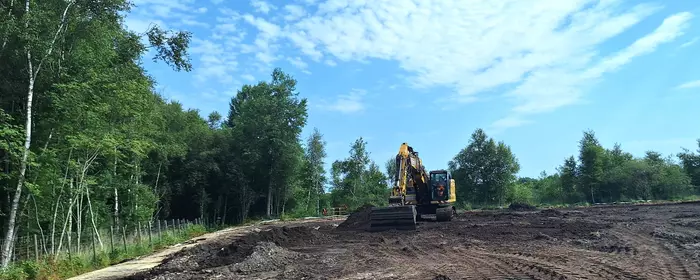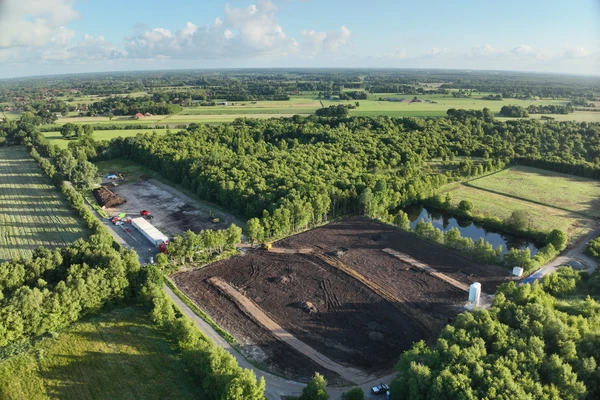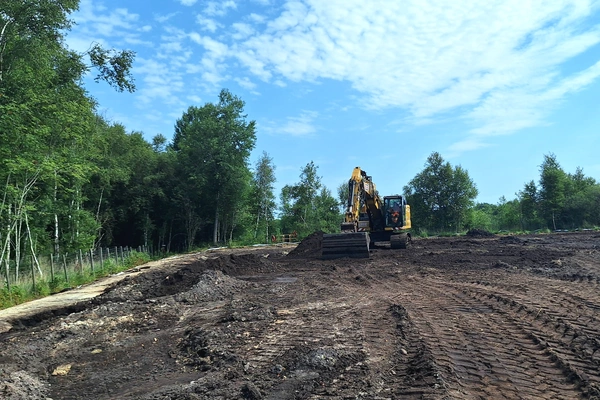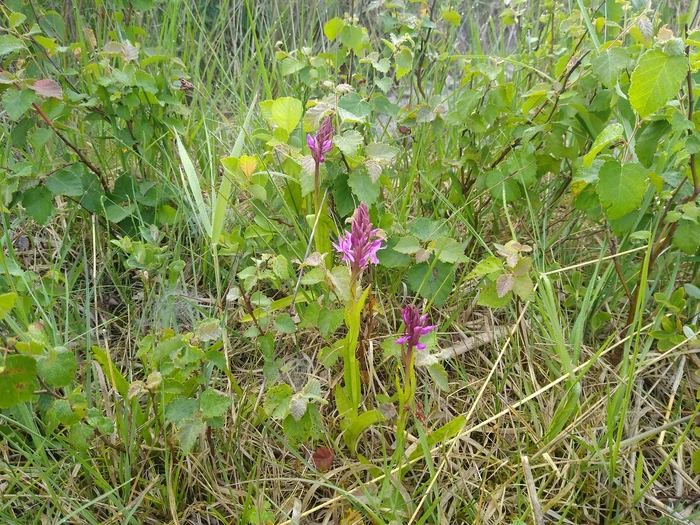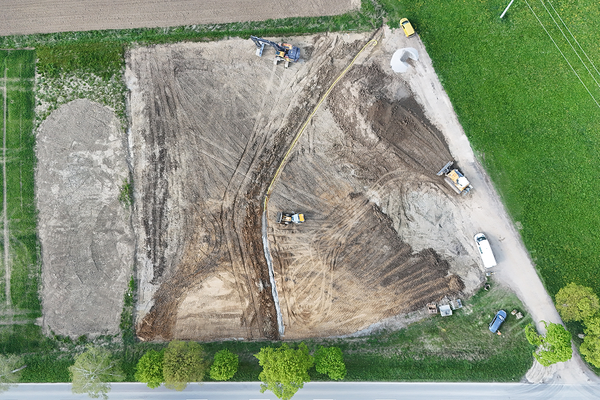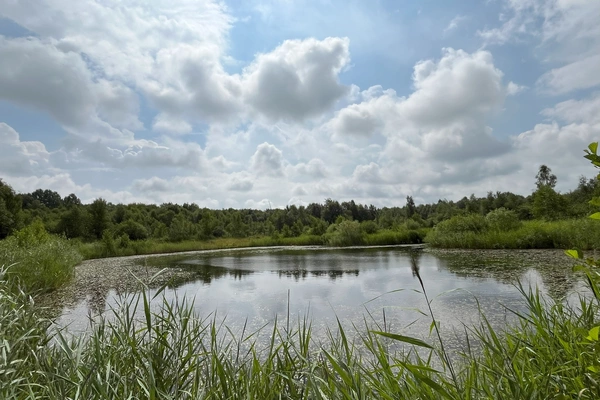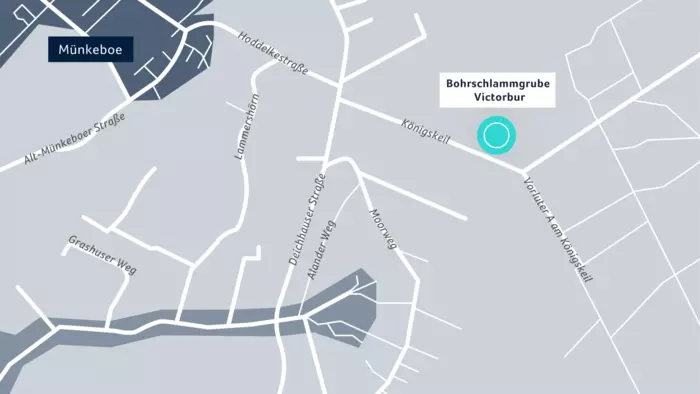Over the next few months, we will be constructing new shallow water biotopes on the Zum Königskeil road in the municipality of Großheide in the district of Aurich. To do this, our experts and specialised companies are excavating two basins in the disused Victorbur drilling mud disposal pit. We will complete the work in the winter of 2025/2026, depending on weather conditions and other factors.
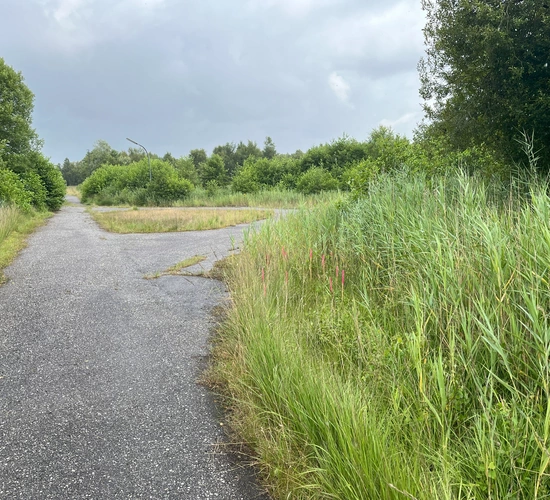
Then and now
In the past, the oil and gas industry used to store residues from production in so-called drilling mud disposal pits in accordance with the state of the art at the time, under official supervision. Today, the companies utilise or dispose of the quantities of drilling mud produced immediately, i.e. without intermediate storage, in accordance with circular economy legislation.
Our work in Großheide
We are removing around 46,000 tonnes - in addition to drilling fluid residue, this also includes, for example, additional removal of cover soil or bed material for technical reasons.
After setting up the construction site, our team removed the partially reusable soil cover from the basins. We temporarily store the peaty soil on site until it is reinstalled. The team is now mixing the landfill with a cement-based binder to create the necessary stability. Based on the results of a landfill analysis in the laboratory, experts allocate the materials to suitable disposal facilities. Lorries transport the contents of the basins, which are covered with tarpaulins. After the basins have been emptied, external experts check compliance with the specified remediation values in the excavated soil.
The programme now includes the renaturation of the two former basins into shallow water biotopes. This includes, for example, flattening the embankments and shaping the landscape with suitable sand and the temporarily stored cover soil. Once the work is complete, a valuable area will be created from a nature conservation perspective that can serve as a habitat for many species.
History of the Victorbur drilling mud disposal pit
Preußische Bergwerks- und Hütten-Aktiengesellschaft, a predecessor company of Neptune Energy, began landfill operations in 1963. Until 2005, residues from oil and gas production were stored in the Victorbur drilling mud disposal pit - non-recyclable drilling fluids and rock particles from the drilling process. The Victorbur pit system consists of seven individual basins, two of which have already been cleared and two others have been provided with a qualified surface seal. Parts of the site have already been recultivated and already form a shallow water biotope.
Background to the planned construction measures
After our groundwater measuring points detected elevated salt levels in the area around the drilling mud disposal pit, experts investigated the two affected basins in 2021 using so-called pile-driving coring to get to the bottom of the cause. The experts also found increased salt content and oil deposits in the landfill.
Both basins date back to the early days of landfill operation. According to the state of the art at the time, it could be assumed that the pits were self-sealing due to the clay flushing. However, the pits were not lined with foil and the surface was not covered at the time.
We therefore decided to completely clear both pits as soon as the results became known. As part of a comprehensive official approval process, the Neptune Energy project team was required to fulfil various conditions in advance - including subsurface investigations using geoelectric measurements and conductivity pressure soundings as well as the expansion of the existing groundwater monitoring well system. In 2024, we received the final official authorisation to start the dismantling work.
